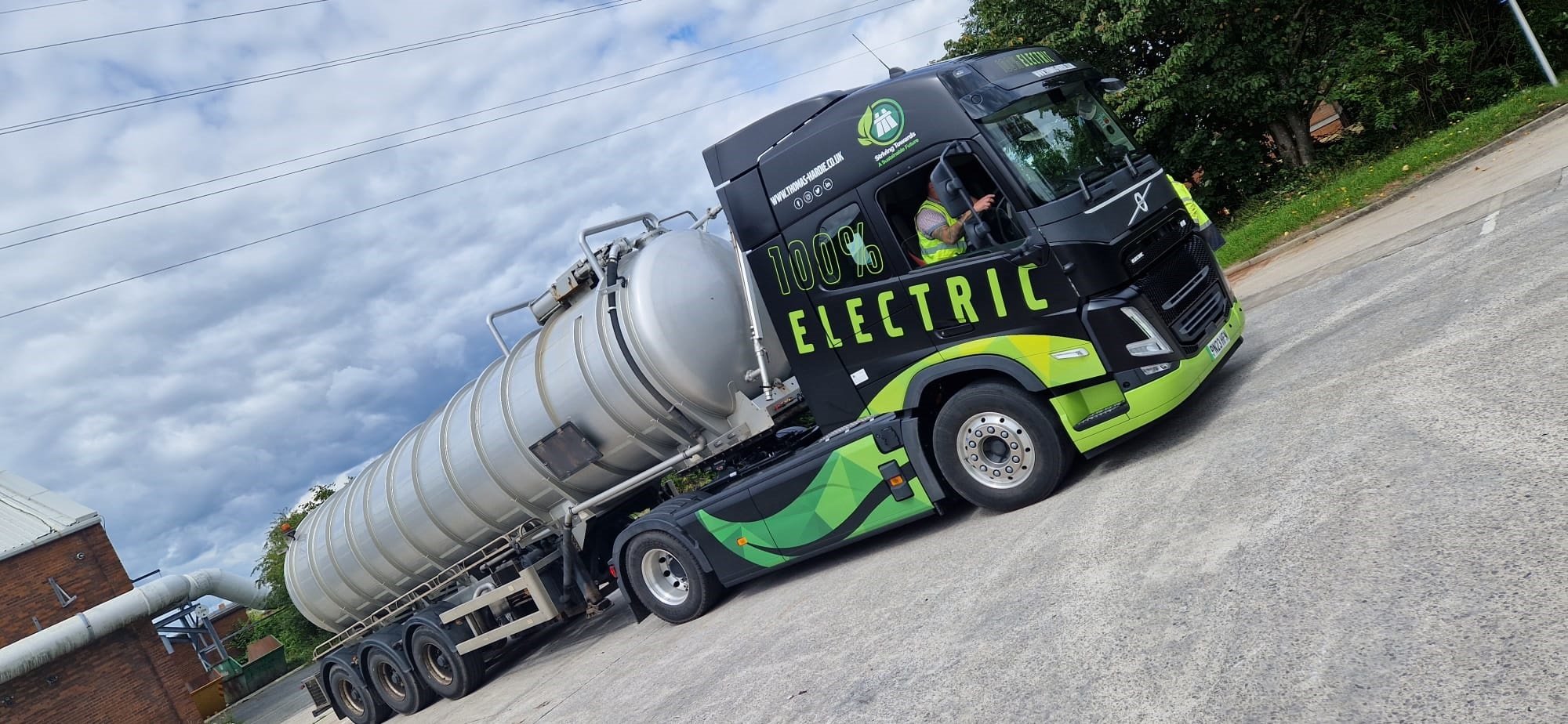From flush to fuel for United Utilities’ new electric HGVs
United Utilities is set to introduce electric heavy goods vehicles which will be powered by poo.
It is the only water company in the UK taking part in the £100 million + ‘Electric Freightway’ project led by GRIDSERVE and funded as part of the Department for Transport and Innovate UK backed Zero Emission HGV and Infrastructure Demonstrator programme.
 The water company for the North West joins a consortium of 33 companies including Sainsbury’s, Amazon and the Royal Mail taking part in the industry-leading project which aims to lay the foundations for the biggest and most advanced Electric Heavy Goods Vehicle (eHGV) charging networks in the world. It is designed to reshape how goods are transported across the UK and accelerate the transition to battery powered electric HGV vehicles by kick-starting the introduction of one of the biggest and most advanced eHGV charging networks in the world.
The water company for the North West joins a consortium of 33 companies including Sainsbury’s, Amazon and the Royal Mail taking part in the industry-leading project which aims to lay the foundations for the biggest and most advanced Electric Heavy Goods Vehicle (eHGV) charging networks in the world. It is designed to reshape how goods are transported across the UK and accelerate the transition to battery powered electric HGV vehicles by kick-starting the introduction of one of the biggest and most advanced eHGV charging networks in the world.
The United Utilities vehicles will be based at the company’s Bioresources Centre in Manchester where they will be used to transport sewage sludge, a by-product of sewage treatment, from other wastewater treatment facilities across the North West for processing at the Davyhulme site.
The vehicles will charge up at Davyhulme using the renewable electricity produced on site from the processed sewage sludge.
Tom Lissett, Bioresources and Green Energy Director at United Utilities explained: “This is a really exciting development and an important step towards our 100% green fleet and net zero carbon targets.
“A lot of people don’t realise that at the end of the wastewater treatment process we are left with a sludge which is used to generate renewable energy. We call this ‘black gold’ because of the renewable energy we can release when it is processed.
“Using the vehicles to collect the sludge and then using the clean energy it generates to charge their batteries is a great way of maximising the potential of that resource. We’ve recently trialled one electric HGV so we know it is a good solution for us.”
The biogas generated in the anaerobic digestion process goes to a combined heat and power unit where it is converted into 100% renewable energy which will be used to power the HGV charging points.
Making the announcement, Decarbonisation Minister Jesse Norman said: “The UK is at the forefront of the global transition to net zero, and today marks another important milestone to decarbonise freight, one of the economy’s most vital industries. That’s why I’m pleased to reveal that we’re investing £200 million to roll out 370 zero emission trucks, and a further £2.4 million to pioneer green tech through the Freight Innovation Fund, as we work closely with the sector to create new jobs, grow the economy and reach net zero by 2050.”
The specialist charging points will be installed by GRIDSERVE as part of the demonstrator and it is expected the vehicles will be introduced in Spring 2024. United Utilities will share learnings and data with other companies to help support the UKs transition to electric vehicles.